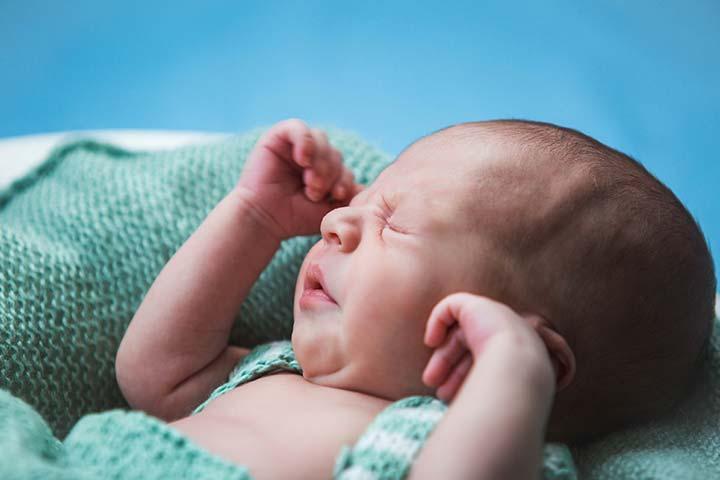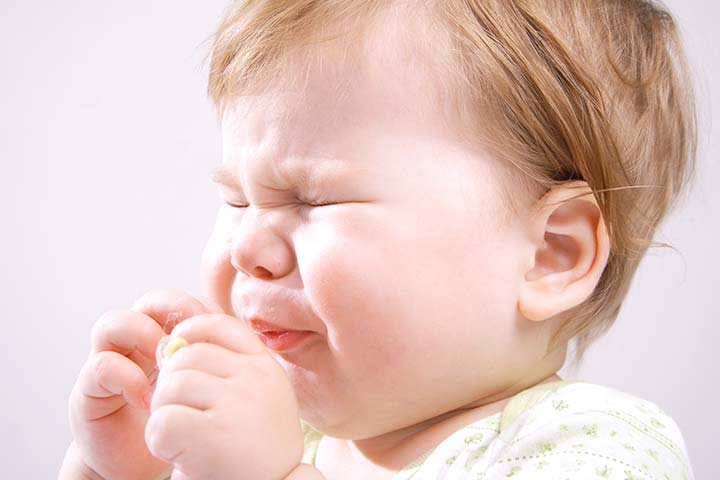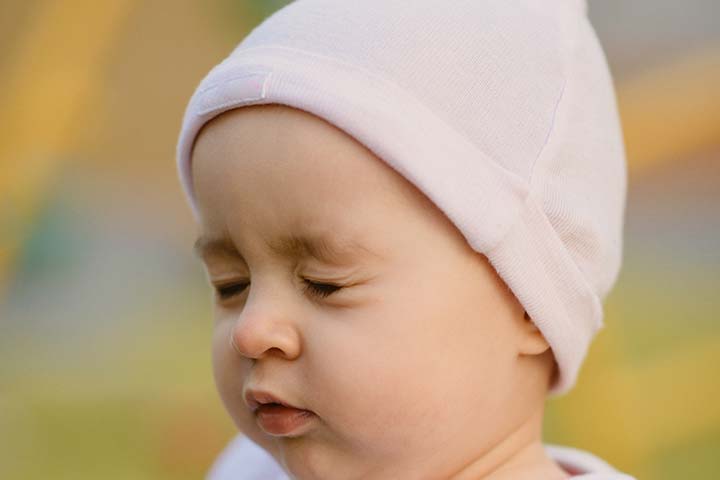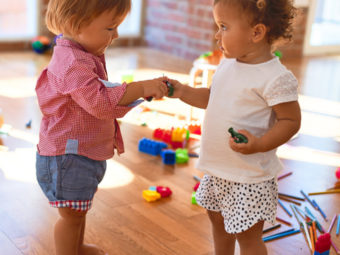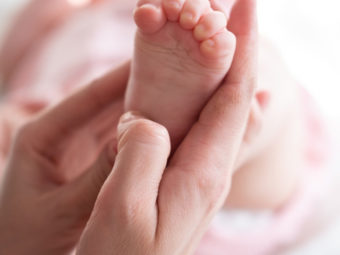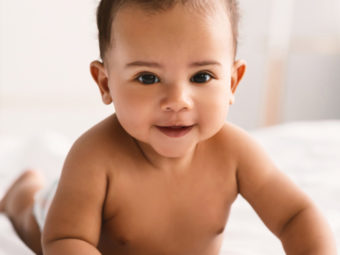
Image: Shutterstock
Newborn babies aren’t anything that an adult imagines them to be. They not only look different than those mushy baby pics but they also come with a lot of quirks. Their little coughs, sneezes, or hiccups look cute initially but might become a cause of concern for new parents when they persist. Most parents assume coughs and sneezes to be reactions to seasonal changes. However, it is the hiccups that might worry them the most as they come and go without any reason. At least, that is what they think. If you are one such parent who is curious about your baby’s hiccups, then let us tell you that you are not alone. Apart from scores of parents like you, a bunch of researchers too got curious about a newborn baby’s hiccups. Here’s what they found:
Baby Hiccups: What Research Says
After noticing newborns getting persistent hiccups, a group of researchers at University College of London monitored 13 newborns with the condition. They attached brainwave tracking electrodes to the scalps of these newborns. Movement sensors were also attached to their torsos. With these tracking devices in place, they found that each time the diaphragm contracted to cause a hiccup, it triggered three large brainwaves within the cortex. Since the third wave usually resembles waves provoked by noise, the researchers concluded that this could be a signal allowing babies’ brains to connect the ‘hic’ sound of the hiccup to the sensation of the contracting diaphragm muscles. Let us tell you that this connection is not an ordinary one. It is quite important (1). Here’s why.
据的主要研究者之一study, Lorenzo Fabrizi, Ph.D., the sensory information that the hiccup sends to the brain helps babies ‘learn’ about their body map. This learning, in turn, helps them to later control their breathing voluntarily. In simple words, this means that these brainwaves teach babies how breathing feels and how their bodies are constructed. Through this, the babies learn to regulate their breathing voluntarily when they get older. But once their brains have made that connection, it is believed that hiccups no longer serve the purpose they were meant for. This could explain why babies have less and less frequent hiccups as they grow up. But of course, hiccups do not go away completely as well. We continue to experience hiccups even as adults, don’t we? However, researchers now believe that it could possibly be a sort of hangover from our early developmental age.
Another interesting thing about a baby’s hiccups is that it starts much earlier even before the baby is born. Sometimes, as early as nine to ten weeks of pregnancy (2). Most expectant moms might be able to sense the fetal hiccups inside the womb. It might not be easy for them to differentiate between a regular fetal movement and a fetal hiccup. However, some pregnant women do describe the feeling of fetal hiccups as a more rhythmic movement compared to other movements. Whereas some describe it as a twitching or pulsating sensation that might feel very similar to a muscle spasm (3).
Why Do Parents Worry About Hiccups?
According to Fabrizi, hiccups are perfectly normal in babies. He believes that most parents worry about hiccups because it can be quite annoying. Since adults find it annoying, they assume it might be annoying to the baby as well. However, as Fabrizi points out, babies might hiccup even when they are sleeping.
With a newborn in tow, new parents have so much to look into. Thus, it is quite understandable if they fret or worry about the slightest things that might seem out of normal to them. We’re sure there may be plenty of such things on your mind as a parent. We hope, however, that this informative write-up helps you to strike ‘hiccups’ off that list!

